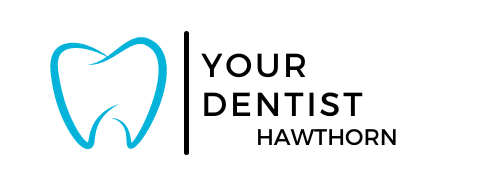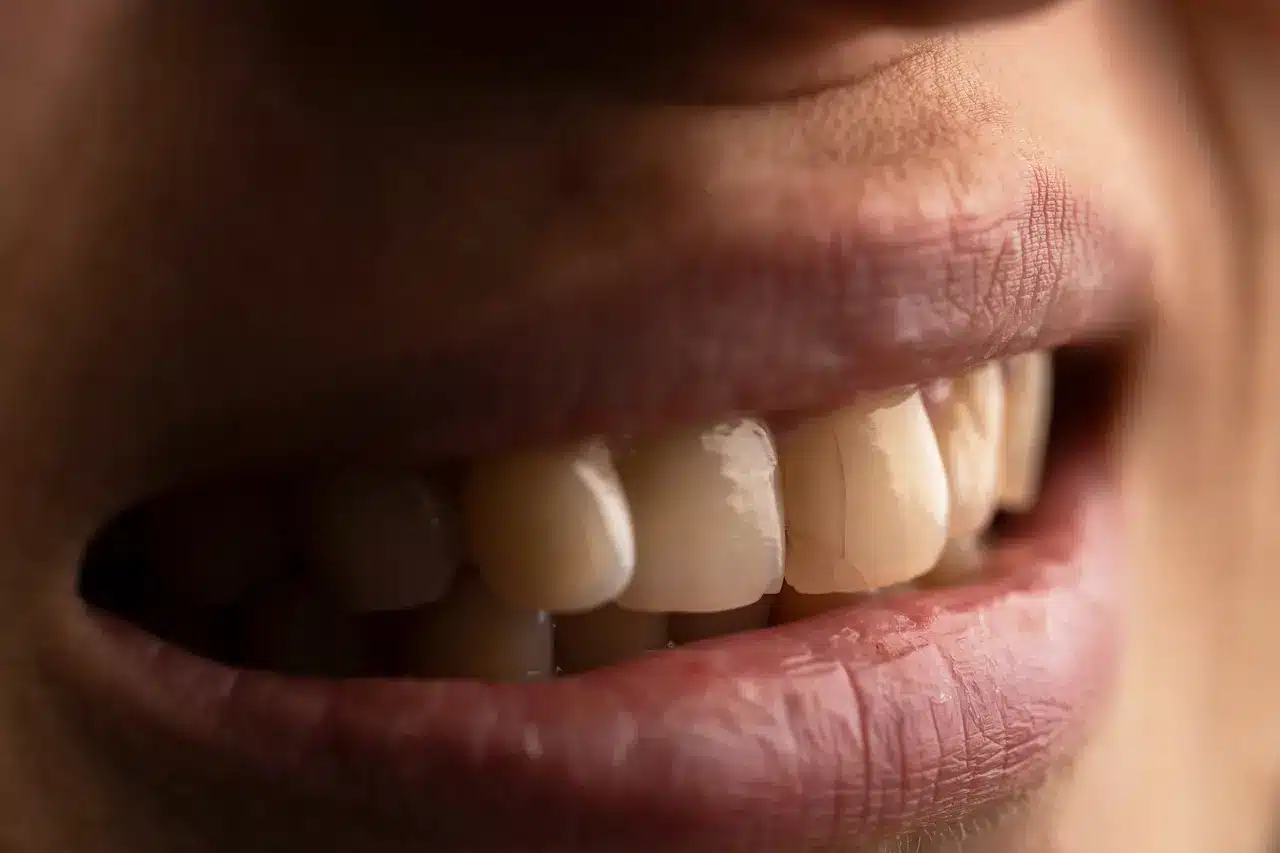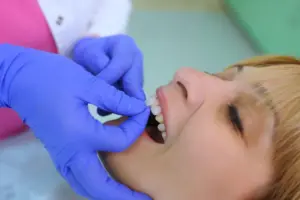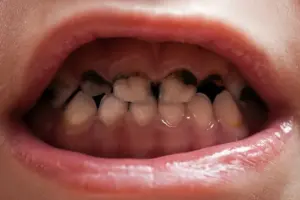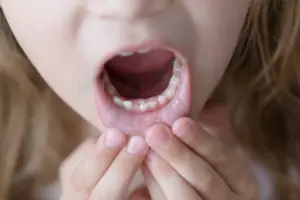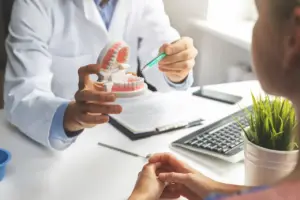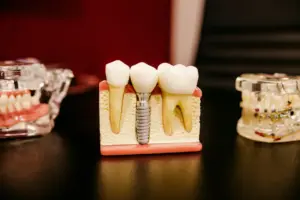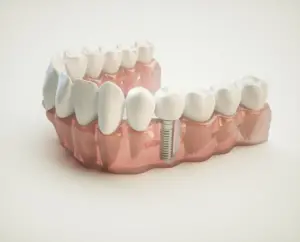10 Common Dental Problems and its Treatments
Table of Contents
ToggleYou may experience discomfort or pain due to a variety of dental issues. You can prevent future problems by learning about the most common issues. This list of dental issues and recommended treatments can improve the dental health of adults and children.
1. Tooth Decay
Cavities, or tooth decay, is the gradual destruction of teeth surfaces. The problem affects both adults and children. When bacteria are exposed to the tooth enamel, it can cause cavities. Bacteria produce plaque, which in turn produces harmful acids. You can lose minerals that protect your teeth if you expose them to acid.
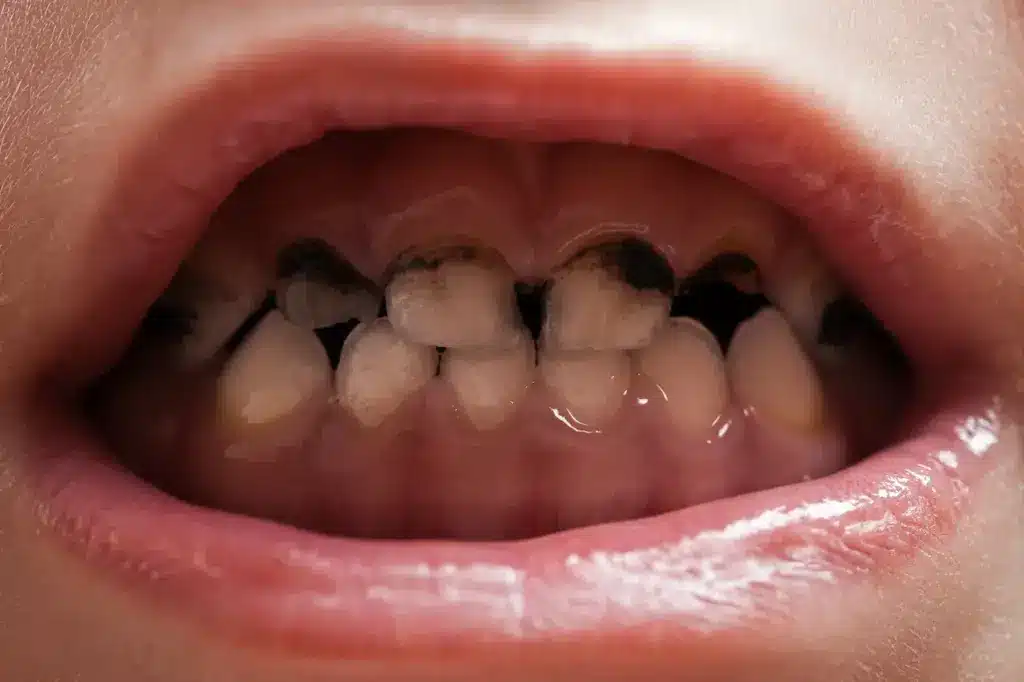
These actions can be used by both children and adults to limit the development of cavities.
- Follow proper dental hygiene. Following appropriate dental care procedures can reduce cavities. The American Dental Association recommends that people brush their teeth twice daily, for two minutes each time. The ADA recommends fluoride toothpaste and other products for preventing tooth decay.
- Avoid sugary and starchy food: Sugary or starchy foods can cause more damage to your teeth. Limit soda, potato chips and candy. These foods can dry out your mouth. Too much sugar can cause tooth decay in children.
- Visit the dentist frequently: Regular appointments can help you detect and treat tooth decay faster. Dentists and dental hygienists can check for early signs and apply fluoride treatments.
2. Gingivitis
Gingivitis, a mild form of gum disease, is caused by plaque buildup. The gums are the tissues that support and protect your teeth. It causes irritation and redness around the gums. If not treated, this can become painful.
Gingivitis occurs in adolescents and adults. You are at greater risk if you have:
- Hormonal changes
- Poor dental hygiene
- Inadequate nutrition
- Specific medications or medical conditions
Plaque removal is the best way to combat gingivitis. You can have your dentist thoroughly clean the teeth using different tools to remove plaque. You can get advice from dental professionals on how to prevent gingivitis by using oral hygiene.
3. Missing teeth
One or more missing teeth is another common dental problem. Missing teeth can be caused by a variety of reasons.
- Hyperodontia: Hypodontia occurs when a person is born without teeth. Anyone can be affected by hypodontia. However, it is most commonly genetic. This condition can affect any area of the mouth.
- Injuries Patients can lose teeth as a result of car accidents, sports injuries or other trauma.
- Gum Disease: Gum diseases can cause teeth to decay and lead to tooth loss over time.
Missing teeth can make it difficult to chew and increase the risk of other dental problems. Dentists can treat this condition in a variety of ways, including:
- Dental implants
- Braces and other orthodontics
- Dental bridges
4. Yellow Teeth
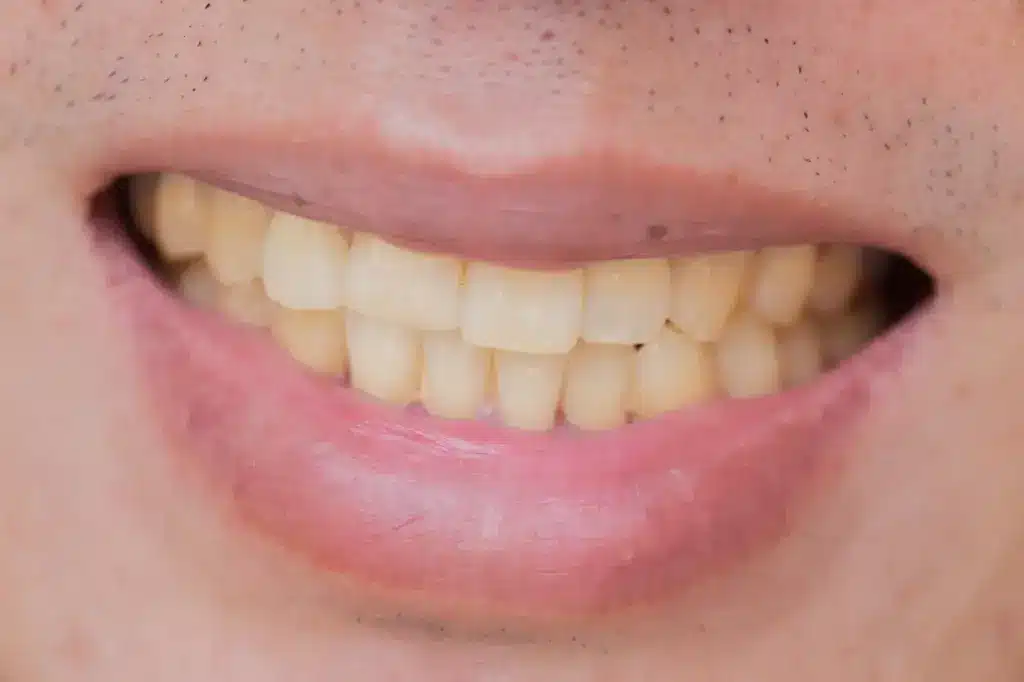
Yellow teeth or discoloured ones are also a common dental issue for both children and adults. Certain factors can damage your enamel and cause it to discolour.
- Diet: Specific foods and beverages may cause discolouration of teeth. Foods with high tannin levels, for example, can cause your enamel to wear out faster. Red wine, soda, and coffee are the main causes of discolouration.
- Smoking Smoking causes yellow and brown stains to your teeth.
- Yellow teeth: Specific medical conditions or treatment can increase the risk of yellowing.
Kids and adults alike can fix yellow teeth using a variety of strategies. You can ask your dentist for professional teeth-whitening services to remove discoloured tooth enamel. You can also use whitening strips or toothpaste at home to reduce discolouration.
5. Halitosis
Halitosis, a condition that can be prevented, is characterized by foul-smelling breath. The problem can last for a short time or be persistent, depending on who is affected and the cause. You may develop due to factors such as.
- After eating certain foods, your breath will smell stronger.
- Incorrect or poor dental hygiene: Failing to brush, floss or visit your dentist can increase the risk of halitosis. Food particles in the mouth can develop an odour over time.
- Bad breath is also caused by dry mouths. This condition limits the mouth’s ability to cleanse itself.
Halitosis can be treated by adults and children with regular dental visits and oral hygiene.
6. Tooth Sensitivity
After brushing, eating or drinking, sensitive teeth can become painful or irritated. Tooth sensitivity can affect both adults and children. Your teeth can become sensitive due to tooth enamel wear or exposed root surfaces. Teeth irritation can also be caused by other dental problems, such as cavities or gum disease.
Your dentist will help you determine the cause of your sensitivity and suggest treatment options. Your dentist may recommend fluoride treatments or desensitizing toothpaste to strengthen the enamel. Your dentist may recommend root canals for severe cases. This involves removing the inflamed tooth pulp.
7. Cracked teeth
Teeth can break due to injuries or wear. It’s possible that you don’t notice a crack in your tooth right away. Symptoms like extreme pain when chewing, or after being exposed to high temperatures can be warning signs. Significant cracks can create a gum infection, making it essential to get treatment quickly.
A visit to your dentist is the best way to repair a cracked or broken tooth. The dentist’s treatment of cracked teeth depends on the location and type of injury. You may need to have the tooth removed or undergo endodontic surgery, depending on its severity.
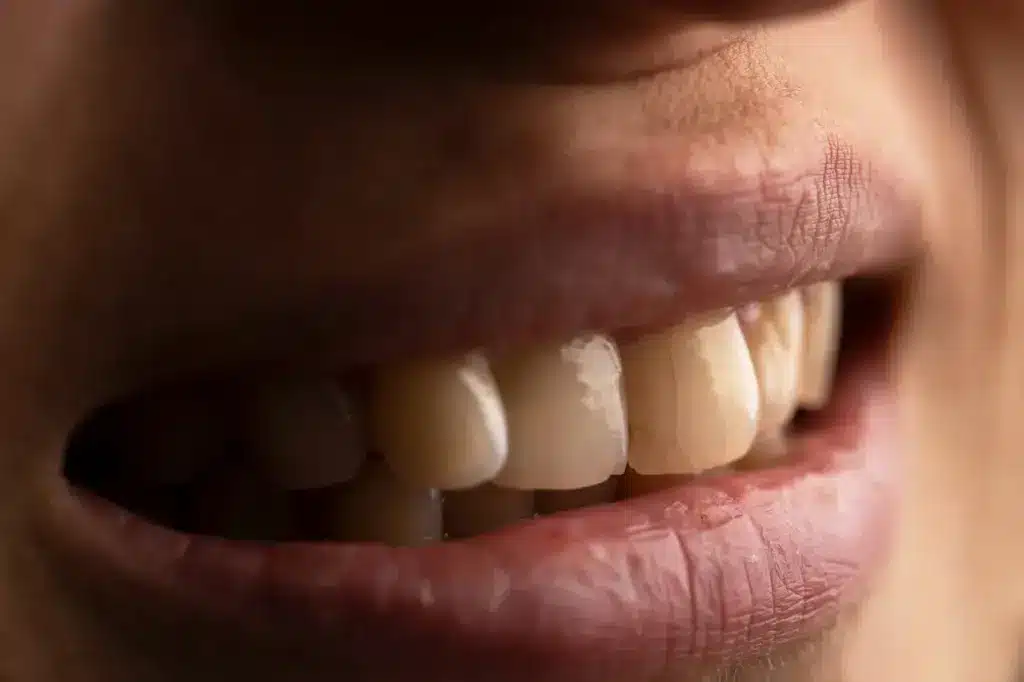
8. Gums that recede
Gum disease is also known as gum recession. This occurs when the gums pull back from your teeth, exposing the roots and causing irritation. Gum recession can affect both children and adults.
- Brushing aggressively
- Genetics
- Poor oral hygiene
- Smoking
Although you cannot reverse gum recession once it has begun, you can prevent it from getting worse by taking preventative measures. Dentists can diagnose the problem and recommend the best treatment. They may suggest antibiotics, surgery, orthodontics or other options.
9. Misaligned Teeth
Misaligned teeth are common among patients. This issue, depending on its severity, can make it hard to speak, chew or breathe. Misaligned teeth can be hereditary and passed on through generations. If children continue to suck their thumbs or use pacifiers after the age of 3, they can develop misaligned teeth.
They can correct misalignment by removing teeth or performing surgery. These patients are often referred to orthodontists who will fit them with braces.
10. Enamel Erosion
Acid wears down your tooth enamel and exposes the next layer of the tooth. This condition is gradual, causing your teeth to lose their edges and surfaces. Enamel erosion can increase teeth sensitivity and make eating or drinking painful. Acidic foods and drinks like fruit juice, alcohol, candy, and carbonated drinks can cause erosion, as can health issues like eating disorders or diabetes.
Treatment for erosion varies depending on the cause and severity. Your dentist will inspect the affected area and then recommend the most appropriate treatment. The dentist may complete a dental filling, crown or dental bonding. By reducing the consumption of acidic food and maintaining proper oral hygiene, you can prevent further erosion.
Other Dental Conditions
Patients can also suffer from rarer dental conditions. Dentists also treat less common issues such as:
- Oral Cancer: Oral carcinoma affects the oral cavity. This includes your teeth and gums as well as your lips, tongue, mouth interior, and tongue. It is caused by mutating the DNA of oral cells, which can lead to tumours growing in the mouth and other areas. Smoking and excessive alcohol consumption are factors that can increase your risk of developing oral cancer. can be used to treat oral cancer through surgery, radiation, or chemotherapy. Tobacco and alcohol can be avoided by patients who keep regular dental appointments and avoid smoking.
- Anodontia: Anodontia is a rare condition causing the loss of all teeth. Dentures and dental implants are used by dental professionals to treat this condition.
